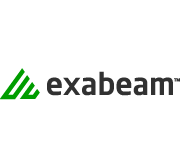Bureau of Indian Standards hosts the 15th Plenary meeting of the Technical Committee of the International Organisation for Standardisation (ISO) and International Electrotechnical Commission (IEC) for developing international standards on Artificial Intelligence.
Hyderabad, 10 April 2025 “India is ready to take on a greater role in shaping global AI standards. The government is committed to advancing AI technology particularly LLM (Large Language Model) and SLM (Small Language Model) in a responsible manner, ensuring these are developed with both global collaboration and national priorities in mind.” – Smt. Nidhi Khare, Secretary, DoCA, said at the inauguration of the plenary meeting. She further highlighted the importance of aligning national AI strategies with global standards that are inclusive, context-aware, and adaptable to local needs.
The inaugural session was addressed by D.G. BIS, Shri Pramod Kumar Tiwari, Shri S. Krishnan, Secretary of MeitY; Mr. Wael William Diab, Chairperson of ISO/IEC JTC 1/SC 42; Shri Vimal Mahendru, Vice President of IEC; and Mr. Luis G. Aranda Claussen from the OECD (participated virtually).
Shri S. Krishnan, Secretary MeitY reflected on India’s sustained engagements and partnerships with the key stakeholders in the field of AI as the founding member of the Global Partnership on AI (GPAI). Highlighting India’s commitment to promoting ‘AI for good and for All’, he said – “Government of India is working for Democratising & Decentralising the way Artificial Intelligence works and there is a need of setting standards for AI so that we stay ahead of the curve”.
Bureau of Indian Standards (BIS), the National Standards Body of India, is leading the global efforts of standardisation related to Artificial Intelligence. The 15th plenary and sub-group meetings of the ISO/IEC JTC 1/SC 42 ‘Artificial Intelligence’ sub-committee hosted by BIS in New Delhi were attended by more than 350 global experts from 70 countries.
Speaking at the inaugural session of the plenary, Shri Pramod Kumar Tiwari, Director General, BIS, welcomed the participants and the ISO/ IEC JTC 1/SC 42 and applauded its efforts in establishing transparent and inclusive AI standards. He said, “BIS has formed sector-specific groups for targeted AI standard development and strengthened partnerships with ministries, academia, regulatory bodies, and consumer bodies for targeted AI standard development.” Informing the participants about the upcoming IEC General Meeting in India in Sep 2025, he said – “The IEC general meeting 2025, in New Delhi; is a testament to India’s increasing participation in global standards. In addition to hosting management meetings and more than 45 technical committee and subcommittee meetings, BIS will organise seminars, workshops, and exhibitions on various emerging technologies, including AI. This will be an excellent platform to discuss the socio-economic impacts and the role of standardisation in ensuring responsible growth.”
The week-long deliberations covered key aspects of the rapidly changing technology landscape of the Artificial Intelligence such as foundational AI standards, Data governance, Trustworthiness, computational approaches, and AI applications across industries including de identification in machine learning and quality assurance in generative AI applications. India is leading a discussion on standards for the Resilience Assessment of AI systems.
Extending his gratitude to BIS for hosting the SC 42 plenary, Mr. Wael William Diab, the incumbent chairperson of the Committee informed that the Committee has successfully published 35 ISO standards on AI and 47 other ISO standards on AI are under development.
On the sidelines of the plenary summit, BIS organised an International Workshop on ‘Enabling Trust in Technology in the Age of LLMs and Generative AI’. Speaking at the workshop Shri Abhishek Singh, Additional Secretary MeitY and CEO of IndiaAI Mission highlighted how Trust in AI can be built through Fairness, Transparency, and Accountability with diverse and inclusive data sets. He said this can be achieved only through a set of standards generated through Extensive consultation and deliberation in a forum like this. He also shared India’s experience and highlighted the need for standards for voice and image data in a linguistically diverse country like India.
Shri Bharat Khera, Additional Secretary, DoCA said – “To fully harness AI’s power, it is imperative to establish robust, inclusive, and internationally recognized standards that ensure trust, fairness, security, and accessibility. These standards will not only safeguard AI’s ethical deployment but also help create a level playing field for developing nations, enabling them to adopt and implement AI responsibly and effectively.” He cited the example of the AI-enabled National Consumer Helpline (NCH) system for transformation of the grievance redressal through AI-powered automated classification and predictive analysis, reducing resolution time.
The meetings and workshops highlighted India’s pivotal role in shaping the future of global AI governance. As the national standards body of India, the Bureau of Indian Standards (BIS) represents the country in international committees of ISO and IEC, which are involved in the development of international standards. These standards play a vital role in the global economy, ease of trade, ensuring interoperability, safety, security, reliability of systems, and achieving the UN SDGs.
 Newspatrolling.com News cum Content Syndication Portal Online
Newspatrolling.com News cum Content Syndication Portal Online







